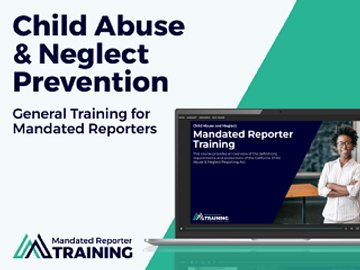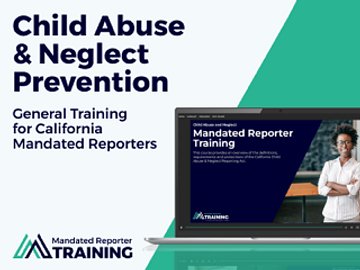Filter by
Sort
Sub-category
Training Bundles
- Artificial Intelligence
- California HR Essentials
- Cybersecurity Essentials
- Digital Transformation
- Diversity, Equity & Inclusion
- DOT/CDL
- Drug and Alcohol Compliance
- Financial Compliance
- First Aid
- Food Safety
- HIPAA Compliance
- HR Essentials
- Leadership
- Mental Health & Wellbeing
- OSHA / Construction Safety
- Personal Development
- Project Management
- Retail
- Workplace Harassment
- Workplace Safety
State
Language
Tags
Price
Duration
Audience
Online HR Compliance Courses
Courses

HR Compliance
National Child Abuse Mandated Reporter Training MRT

HR Compliance
New York Sexual Harassment Training (Spanish)

HR Compliance
Sexual Harassment in The Workplace - National (Spanish)

HR Compliance
Preventing Workplace Violence in California

HR Compliance
New York Sexual Harassment Training

HR Compliance
Sexual Harassment in the Workplace National

HR Compliance
California Child Abuse Mandated Reporter Training MRT

HR Compliance
Sexual Harassment: Types of Sexual Harassment

HR Compliance
Sexual Harassment Prevention in Illinois Spanish

HR Compliance
Workplace Violence Prevention in California: AB553

HR Compliance
Workplace Violence Prevention Made Simple Course

HR Compliance
Workplace Violence Prevention in California Course

HR Compliance
Government Contractor Code of Conduct Course
About HR Compliance Training
Why HR Compliance Training Matters More Than Ever
A friend of mine works as an HR manager at a small healthcare company. She once told me she woke up at 3 a.m. thinking, “Did I update our harassment training last year?” She couldn’t shake the thought of an audit or a lawsuit regarding hr compliance issues catching her off guard.
That’s the kind of pressure many HR professionals live with when navigating laws and regulations. Compliance may not be exciting, but it is essential for avoiding discrimination lawsuits. It’s not the part of the job you brag about, especially when dealing with hr compliance issues. But it’s the safety net that keeps the whole company steady. Without it, one missed update or one lawsuit related to employment can cost more than anyone wants to admit.
Cutting Through the Legal Fog
Ever tried reading through new labor law updates? Feels like wading through mud. Long sentences. Legal jargon. And meanwhile, you’ve got interviews to run, onboarding to handle, and payroll questions piling up.
That’s why HR compliance training matters for understanding workplace safety and best practices. Done well, it takes the mess of rules and regulations and puts them into plain language your team can actually use. Instead of a wall of text, you get:
-
what the rule says,
-
what it means for your workplace,
-
and how employees should act on it.
It’s like having a translator standing between you and the law — someone saying, “Here’s the part that really matters.”
Training People Without Putting Them to Sleep
Here’s the thing: most employees don’t love compliance training. They sit there, clicking “next,” waiting for the clock to run out. HR leaders can tell — it’s compliance theater, not real learning.
But newer training on hr compliance issues is different and more effective. It throws people into situations that feel familiar:
-
A manager hears a harassment complaint. What’s the right first step?
-
A retail worker spots a safety hazard on the floor. How do they report it?
-
A finance team member is asked for customer data to ensure compliance with wage laws and regulations. What should they do?
These aren’t just lessons on a slide. They’re real choices, real scenarios. And that makes the training stick. Employees walk away thinking, “Yeah, I’d know what to do if that employment discrimination happened.”
Proof When You Need It Most
Here’s the nightmare: you’re in a meeting with an auditor or lawyer, and they ask for proof of compliance training. If you’re still digging through emails or paper sign-in sheets, that panic is real when it comes to workplace safety.
Modern compliance training saves you from that. Certificates, dashboards, audit-ready reports — all one click away. Instead of scrambling, you can confidently hand over exactly what they need from your hr compliance checklist.
That kind of documentation isn’t just for regulators. It also shows your leadership team that compliance isn’t just an expense. It’s protection. It’s prevention. It also makes HR appear to be the guardian of the company.
A Final Thought
HR compliance training may not be glamorous, but it’s powerful in maintaining workplace safety. It keeps employees safe, protects the company from risk, and gives HR leaders a little peace of mind in a job that rarely slows down.
If you’re already wearing ten different hats in HR, compliance training should be the one that helps you navigate employment laws and regulations. It should lighten your load, not add to it—especially when you need to ensure compliance with best practices. With the right system in place, you can stop worrying about what might slip through the cracks and start focusing on building a stronger workplace.
HR Compliance FAQs
Why is HR Compliance training important for businesses?
HR Compliance training ensures organizations follow employment laws and regulations, protecting both the business and its employees. It helps prevent legal disputes, fosters fair workplace practices, and strengthens company culture. By training staff on topics like harassment, discrimination, and labor laws, businesses build trust, reduce risks, and promote a safe, inclusive, and productive environment.
How often should HR Compliance training be updated?
HR laws and workplace regulations evolve regularly. Best practice is to update HR Compliance training annually or whenever significant regulatory changes occur. This ensures employees remain current with laws such as wage and hour rules, anti-harassment policies, and equal employment standards. Ongoing refreshers also reinforce knowledge and keep compliance top of mind in daily workplace interactions.
Are online HR Compliance programs as effective as in-person training?
Yes, online HR Compliance programs can be just as effective, provided they are interactive and well-designed. Online modules offer flexibility, consistent delivery, and easy scalability across large organizations. However, blending online learning with live discussions can enhance engagement, allowing employees to ask questions and apply real-life scenarios to ensure better understanding and retention.
What happens if HR Compliance training is ignored or not applied?
Neglecting HR Compliance training exposes businesses to serious risks, including lawsuits, penalties, and reputational damage. Issues such as harassment, discrimination, or wage violations can lead to costly settlements and employee turnover. Beyond legal consequences, ignoring HR compliance harms employee morale and creates a toxic workplace culture that stifles growth and innovation.
How can organizations measure the effectiveness of HR Compliance training?
Effectiveness can be measured through employee feedback, knowledge assessments, reduced incident reports, and HR audit results. Tracking improvements in workplace behavior and fewer compliance-related complaints are strong indicators of successful training. Organizations can also monitor participation rates, engagement levels, and compliance metrics to evaluate whether training has the desired impact.











